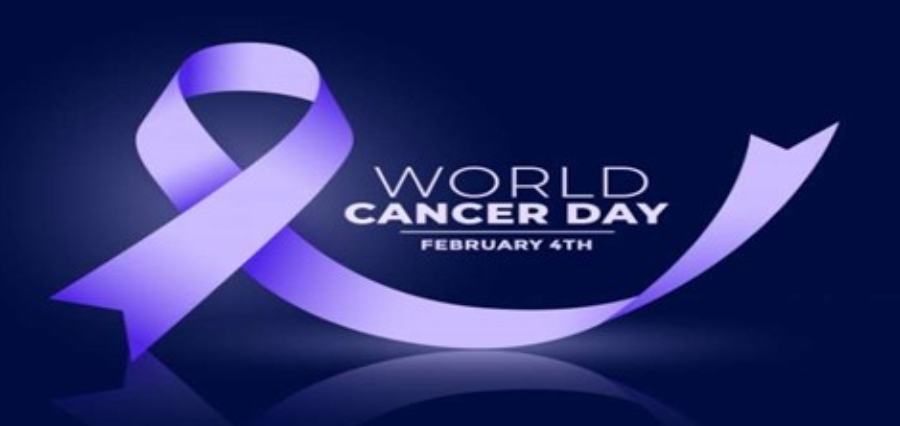World Cancer Day, held every 4 February, is the global uniting initiative led by the Union for International Cancer Control (UICC). It aims to prevent millions of deaths each year by raising awareness about cancer and pressing governments and individuals across the world to take action against the disease.
Cancer is the second-leading cause of death worldwide. 10 million people die from cancer every year. More than 40% of cancer-related deaths could be preventable as they are linked to modifiable risk factors such as smoking, alcohol use, poor diet and physical inactivity. Almost at least one-third of all deaths related to cancer could be prevented through routine screening and early detection and treatment.
The lavender ribbon is a general symbol of awareness for all cancers. It serves as a unifying symbol, promoting empathy and support for anyone affected by cancer, regardless of the specific type.
World Cancer Day aims to promote awareness of cancer as a public health issue and to strengthen actions towards improving access to quality care, screening, early detection, treatment and palliative care. Between 2022 and 2024, the focus of World Cancer Day will be to help “Close the cancer gap.” This year marks the third and final year of the campaign. The theme for this year is “Together, we challenge those in power”. This theme encompasses the global demand for leaders to prioritize and invest in cancer prevention and care and to do more to achieve a just and cancer-free world.
The most common cancers include breast, lung, colon, rectum, and prostate cancers. Breast cancer is the most common female cancer worldwide, including in India, where advanced stages at diagnosis and rising incidence and mortality rates make it essential to understand cancer literacy in women.
Awareness of Breast cancer is incredibly important as early detection of cancer through screening based on imaging is probably the major contributor to a reduction in mortality for breast cancer. Creating awareness about Breast cancer can help to identify it as early as possible when it is most treatable and help empower individuals and families to get an early diagnosis. The main motive behind this awareness program is educating everyone about the benefits of early detection and prevention is better than cure.
We can also prevent cancer by avoiding risky behaviours, eating a healthy diet, maintaining a healthy weight, being physically active, getting regular medical care, etc. Cancer doesn’t mean the end of life. So, never give up. The most important thing in illness is never to lose heart.
“Let’s unite to make the world aware to close the gap in cancer care.”
Written by: Dr. Satinder Malhotra
She is a well-known researcher and reviewer for National and International Journals and has received National and International awards in Research. Her research aimed at the Fabrication of ZnO nanostructures and their nanocomposites and their application for wastewater treatment as an antimicrobial agent and as an anticancer agent.


